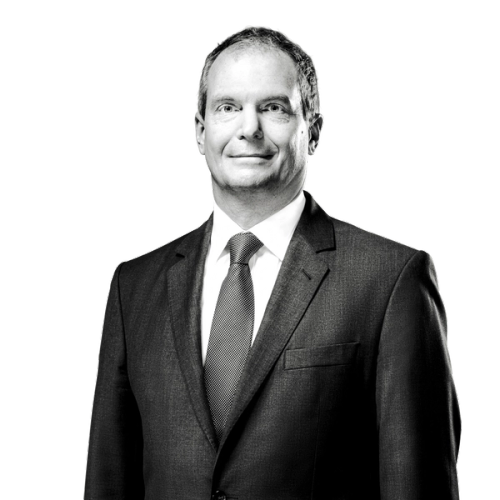German family businesses learned ’crisis skills’ throughout the pandemic
3/15/2022
- New Insight

German family businesses recognized the crisis signals at the beginning of the COVID-19 pandemic – but they did not act immediately. They have been on a steep learning curve, but weren’t able to transform their newly gained knowledge into new processes right away. These are the findings of a recent study by the Chair of Family Business at the WHU Otto Beisheim School of Management and the management consultancy FTI-Andersch.
"Crises are often recognized too late. This was also the case with the Corona pandemic," says Professor Nadine Kammerlander, Head of the Chair of Family Businesses at the WHU Otto Beisheim School of Management. For example, the manager of a family business explicitly stated that for him the 'firefighting principle' applied: when a situation occurs, you try to make the best of it. "We were interested in how family businesses dealt with recognizing and overcoming the crisis," Kammerlander says. The Chair of Family Business therefore conducted 52 interviews, 36 of which were with executives of family businesses and 16 with market observers and representatives of non-family businesses.
Despite hesitant response: family businesses were able to transform their operations
"As specialists for corporate restructuring situations, we are not surprised that German medium-sized companies are initially hesitant to act," says Mike Zöller, CEO of the management consultancy FTI-Andersch, who accompanied the study from a practical perspective. "In many cases, companies do not even admit to a crisis until they are already on the verge of insolvency. It is therefore all the more positive that the companies we surveyed unanimously pulled the lever at the latest when the first lockdown began: Establishment of crisis and steering groups, rapid decisions, rapid implementation in actions. This determination is quite remarkable."
In general, German companies are considered to be less advanced than their global counterparts when it comes to digitization. This was recently shown, among other things, by the global study ’Resilience Barometer®’ by FTI-Consulting. "At least as far as video conferencing and remote working are concerned, our conversations have not confirmed that," says Nadine Kammerlander. "Companies have reported to us that they have been able to adapt to the new environment. And that they have developed new ways of working in an agile 'trial-and-error' principle, with which they have found a new and functioning modus operandi."
"It would have been even faster and easier if everyday routines had already been digitized anyway," says Mike Zöller. "That is certainly a learning outcome from the crisis months: Those who have structured, efficient processes that can be digitized well before a possible next crisis have a decisive advantage. All the more so, according to my observations, work is currently being done on this."
"We are not opponents": financiers demand transparency
WHU researchers have identified a deficit in dealing with financiers. While the family businesses considered themselves to be maximally transparent, financiers and market observers were unable to confirm this across the board. "Our interviewees indicated that they definitely encountered speed and transparency. Especially with regard to the latter, however, they would have wished for more." As one financier put it, "It makes no sense to think of the financier as the adversary. Rather, you should see him as a partner and involve him. The more he knows, the easier it is to make decisions. "Family businesses generally have a reputation for being rather secretive," Kammerlander says. "But it is precisely in such a situation that proactive and as open as possible communication is needed."
One fifth of the companies surveyed in the ‘FTI Resilience Barometer®’ in Germany rate themselves as financially “in distress” (international 17 percent, EU: 13 percent); half report problems serving creditors during the crisis period; 56 percent expect to have to carry out refinancing and restructuring within the next twelve months.
Mike Zöller says: "This survey was conducted before the geopolitical crisis and the war in Ukraine. Many of the crisis effects already in place have recently been exacerbated as a result. It is therefore imperative that companies now think in terms of possible scenarios by simulating various possible market developments and their impact on their liquidity and financial data. Here, companies have some catching up to do."
Much learned, but not formally implemented and documented
In the past few months, “learning took place' in a maximally pragmatic way," says Nadine Kammerlander. "Learning not in seminars but in daily professional practice became the most important principle in many cases." As a family business owner summarizes it: "Often they are not fundamental changes, but if you have learned something new about a case, you change previous habits." "One disadvantage of such learning processes, however, is that they are rarely written down," says Nadine Kammerlander. "Instead, they are tied to employees and their internalized methodological know-how. This impression was also corroborated by the interviews in this study."
Mike Zöller therefore advises institutionalizing adaptive learning processes. "Learning must be reflected and documented, especially when it takes place during ongoing operations," says Zöller. "For example, steering committees can reflect on which measures worked – and which didn't – during the crisis. Which processes have been improved, what has become redundant, what had to be learned. From this, 'best practices' and guidelines can be developed to pass on this knowledge in a structured and targeted manner. And above all, processes must be adapted not just informally, but quite formally. Companies that have done this can build directly on what they have learned in the current situation. For many, that could become the deciding factor in economic resilience in the coming months."
About the investigation:
The Chair of Family Businesses at WHU Otto Beisheim School of Management has investigated the question of how German family businesses have fared in the Corona crisis. To this end, Professor Nadine Kammerlander's team conducted 52 qualitative-explorative interviews: 36 with top executives of German family businesses, 16 with external stakeholders (financiers, management consultants, lawyers, non-family businesses, chambers of commerce). The average annual turnover of the companies is 300 million EUR with a turnover range of 5 million EUR and 5.3 billion EUR. The study was sponsored by FTI-Andersch.
About the ‘FTI Resilience Barometer®’:
FTI Consulting regularly asks decision-makers from companies around the world about current trends and risks for their own business.
Learn more about the Resilience Barometer here:
About FTI-Andersch:
FTI-Andersch is a management consultancy that supports its clients in the development and implementation of sustainable future/performance and restructuring concepts. FTI-Andersch actively supports companies that have to deal with operational or financial challenges and change processes – or want to align their business model, organization and processes for the future at an early stage.
Our clients include medium-sized companies and corporate groups that operate internationally. FTI-Andersch is part of the internationally operating FTI Consulting Group (NYSE: FCN) with more than 6,600 employees.
About the Chair of Family Business at WHU Otto Beisheim School of Management:
WHU's Institute for Family Business and SMEs (ifbm@WHU) is a thought leader in the field of family businesses and SMEs. We are a dedicated team of academics and practitioners and study various aspects of family businesses, hidden champions, and small and medium-sized enterprises. Our current research projects, for example, aim to deepen our understanding of innovation, leadership and employee satisfaction, succession, inactivity, business ethics and financing of family businesses as well as family offices.
